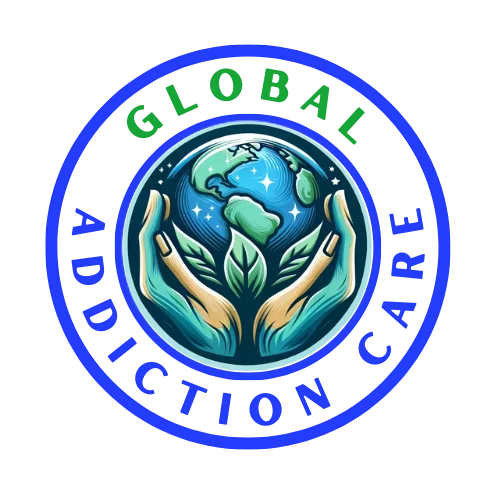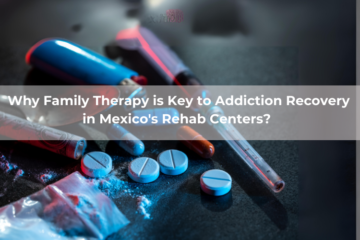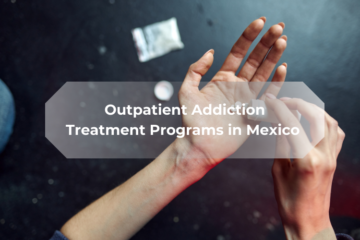When it comes to addiction treatment, one crucial element that often gets overlooked is cultural sensitivity. You see, addiction doesn’t discriminate; it affects people from all walks of life, and each person’s journey to recovery is unique. Cultural sensitivity recognizes that an individual’s cultural background, beliefs, and traditions can significantly impact their experience in addiction treatment. It’s like understanding that different recipes require different ingredients – in this case, the right cultural approach is the key ingredient for a successful recovery recipe.
Now, why should we specifically study Mexican rehabilitation centers in the context of cultural sensitivity? Well, Mexico is a diverse country with a rich tapestry of cultures and traditions, and it also faces its share of addiction-related challenges.
By delving into the experiences and practices of Mexican rehab centers, we not only gain insights into cultural sensitivity but also uncover valuable lessons that can be applied globally. So, whether you’re passionate about addiction treatment or simply curious about the world, you’re in for a fascinating journey through the intersections of culture and recovery.
Table of Contents
Cultural Considerations in Addiction Treatment
You know, when it comes to addiction treatment, it’s not a one-size-fits-all kind of deal. Every person has their own unique background and cultural identity. Cultural considerations in addiction treatment are all about recognizing that and tailoring the approach to fit the individual. It’s like giving someone a customized roadmap to recovery that takes into account their beliefs, traditions, and values.
But why is this so important? Well, culture plays a huge role in how people perceive and experience addiction. It affects everything from how they might view substance use to how they seek help. So, being culturally sensitive in addiction treatment isn’t just a nice touch; it’s essential for providing effective care that truly resonates with the person seeking help.
Think about it this way: imagine trying to help someone find their way home, but you don’t know the landmarks or the language they understand. It’d be pretty tough, right? Cultural considerations in addiction treatment are like learning the landmarks and speaking the language that makes the journey to recovery smoother and more successful.
Rehabilitation Centers in Mexico
So, you know how addiction can be a real tough battle, right? Well, Mexico, like many other places, has its share of people dealing with substance abuse issues. That’s where rehab centers come into play, and they’re pretty diverse down there.
Statistics and Prevalence of Addiction in Mexico:
- Mexico faces a significant challenge with addiction, including substance abuse and alcoholism.
- According to government statistics, approximately 7% of the Mexican population has a substance abuse disorder.
- The most commonly abused substances in Mexico include alcohol, marijuana, and cocaine.
- Addiction issues are not limited to any specific age group, affecting both young and older individuals.
Types of Rehab Centers in Mexico
- Public Rehabilitation Centers: These are government-funded facilities that offer free or low-cost treatment programs.
- Private Rehabilitation Centers: Privately-owned rehab centers provide various treatment options and amenities, often with a higher cost.
- Faith-Based Rehab Centers: Some rehab centers in Mexico integrate religious or spiritual principles into their treatment approaches.
- Holistic Rehabilitation Centers: These facilities focus on a holistic approach, addressing the physical, mental, and spiritual aspects of recovery.
- Luxury Rehab Centers: These upscale facilities offer luxurious accommodations, gourmet meals, and a range of therapeutic services.
Common Treatment Approaches in Mexican Rehab Centers
- Detoxification: Many rehab centers start with a medically supervised detoxification process to safely manage withdrawal symptoms.
- Individual Counseling: One-on-one therapy sessions with licensed therapists to address underlying causes of addiction.
- Group Therapy: Group sessions where individuals can share their experiences, receive support, and learn from peers.
- Behavioral Therapy: Evidence-based therapies like Cognitive-Behavioral Therapy (CBT) are commonly used to modify addictive behaviors.
- 12-Step Programs: Some Mexican rehab centers implement the principles of organizations like Alcoholics Anonymous (AA) and Narcotics Anonymous (NA).
- Family Therapy: Involving family members in the recovery process to address family dynamics and support the individual’s healing.
- Holistic Therapies: These can include activities like yoga, meditation, art therapy, and acupuncture to promote overall well-being.
- Aftercare and Relapse Prevention: Providing strategies and support to help individuals maintain sobriety after leaving the rehab center.
Cultural Sensitivity in Mexican Rehab Centers
You know, addiction treatment is like a puzzle, and one of the essential pieces is cultural sensitivity. In Mexican rehab centers, they get this. They understand that your cultural background, your traditions, and your beliefs play a massive role in your journey to recovery. It’s like making sure the treatment plan fits like a glove, taking into account your unique cultural identity.
So, when you walk into a Mexican rehab center, it’s not just about dealing with the addiction itself; it’s about understanding you as a whole person. They’ll make an effort to train their staff to be culturally competent, incorporate cultural practices into your treatment, and bridge any language gaps.
The idea is to create an environment where you feel comfortable and understood, which can make a world of difference on your path to recovery. It’s like they’re saying, “We’re here to help you, respecting every aspect of who you are.”
The role of cultural sensitivity in the future of addiction treatment
Let’s talk about the future of addiction treatment and how cultural sensitivity plays a vital role:
- Inclusivity Matters: As we move forward, addiction treatment is becoming more inclusive. Cultural sensitivity ensures that everyone, regardless of their background or beliefs, has access to effective care.
- Personalized Approaches: The future of addiction treatment is all about personalization. Cultural sensitivity means tailoring treatment plans to match a person’s cultural needs, making it more effective and relatable.
- Reducing Stigma: Culturally sensitive approaches help reduce the stigma around addiction within various communities. When treatment respects cultural values, it encourages more people to seek help without feeling ashamed.
- Enhancing Success Rates: Cultural sensitivity isn’t just about being nice; it can boost success rates. People are more likely to engage in treatment and stay committed when they feel their cultural identity is respected.
- Global Perspective: Addiction is a global issue, and as we look ahead, cultural sensitivity becomes a bridge that connects different treatment modalities and practices from around the world. It’s about learning from each other’s experiences to improve addiction care globally.
- Cultural Competence Training: Healthcare professionals of the future will likely receive more training in cultural competence to ensure they can effectively work with diverse populations.
- Technology and Telehealth: With the rise of telehealth and digital tools, cultural sensitivity will extend to online platforms, ensuring that even remote or underserved communities receive appropriate care.
- Empowering Communities: Ultimately, the future of addiction treatment will empower communities to take ownership of their recovery solutions. It’s about creating an environment where everyone has a role to play in supporting those struggling with addiction.
Ready to make a difference in addiction treatment worldwide through cultural sensitivity? Contact us today! Let’s work together to create a more inclusive and effective approach to recovery. Reach out now, and let’s start the conversation that can change lives.




